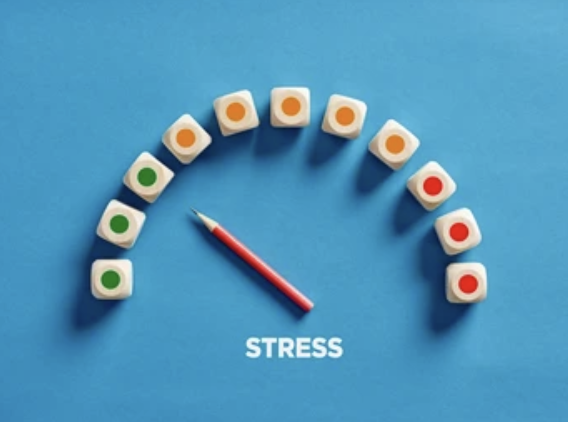Feeling stressed is perfectly normal. When faced with a challenge, stress acts as a warning system, flooding the body with energy producing chemicals. These act to increase heart rate and blood pressure energising your body. Not only does this power you to perform well but it also sharpens senses and increases concentration, enhancing performance and the ability to keep safe.
Here are some blogs and resources to help you better understand your stress and learn how to use stress positively.

Resources to help manage and deal with stress
1. What is stress and how can we use it positively?
Stress can sometimes seem like a strictly negative emotion, and learning to make the best use of stress can be tricky. The good news is, it doesn’t have to be that way. By learning to understand stress, you can start to harness it for your own good.
This blog post explores why we experience stress, encourages you to recognise your own stress response, and gives steps to help you develop a mindset that sees stress as an energiser rather than a threat.
2. Is there anything good about stress?
We all know what stress feels like—whether it ranges from feeling on edge, jittery, irritable and rushed, to experiencing a range of physical symptoms such as stress headaches, panic or feeling overwhelmed.
Much has been written and researched about the experience of too much stress, or ‘bad’ stress. Since it is so unpleasant to experience the ‘benefits’ of stress are often overlooked.
This blog post explores how experiencing and managing small doses of stress can help build stress tolerance, providing strength to deal with life’s adversities. It also provides tips on managing and reducing stress.
3. Stress management for exams
Many schools and universities are witness to the negative anticipation of exams and how they affect students. However, exam stress is not all bad and can be dealt with effectively.
Learning how to make the best use of stress can be very helpful in exams. We have become a society fearful of stress because of the many negative examples of the effects of chronic stress. However, stress is an essential component of good performance.
This blog post helps understand ‘good stress’ and provides tips for managing exam stress in the lead up to the day.
4. What can sport teach us about resilience?
Sport is one of the best ways for young people to learn about building resilience since it provides an opportunity to experience failure, and learn to deal with setbacks. Whilst it is important that sportspeople themselves learn to move away from being self-critical and harsh when they face a set-back, supporters can also play a role in building their resilience by avoiding placing unnecessary criticism and blame.
This blog post gives tips for how to overcome setbacks and build resilience.
5. Download the Clear Fear app
The fear of threat, or anxiety, is like a strong gust of wind. It drags you in and makes you want to fight it or run away. Instead, face your fear with the free Clear Fear app and learn to reduce the physical responses to threat as well as changing thoughts and behaviours and releasing emotions.
Clear Fear is an app to help young people manage the symptoms of anxiety, developed by a clinician in collaboration with young people. The Clear Fear app uses evidence-based Cognitive Behavioural Therapy (CBT).
Download the free Clear Fear app on the App Store and Google Play.
6. Further resources and signposts
Stress is the body’s reaction to a challenge. Depending on how you perceive this challenge, stress can be experienced as ‘good’ or ‘bad’.
- Discover key facts about stress, as well as useful contacts, in our stress leaflet.
- Head to the Stay on Track section of the stem4 website to learn more about learn more about resilience:

